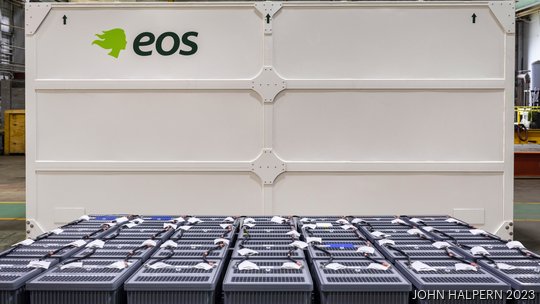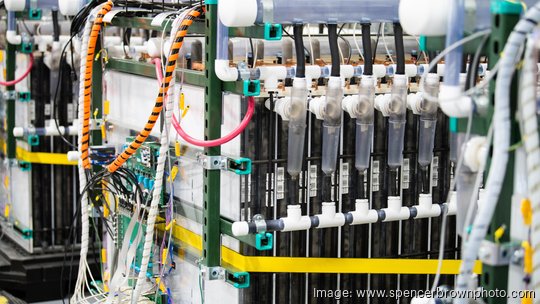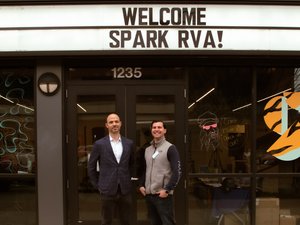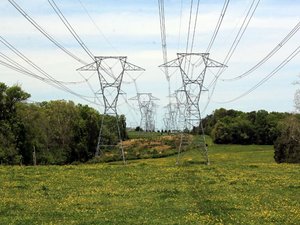
Dominion Energy Virginia recently filed a proposal with the Virginia State Corporation Commission for a $70.6 million battery storage pilot project to test alternative battery products from Somerville, Massachusetts-based Form Energy and Edison, New Jersey’s Eos Energy Enterprises Inc. at its Darbytown Power Station in Henrico County.
The application also included two other battery-related pilot projects, a $6 million outage mitigation and grid support system at a Chesterfield facility and a $14.4 million long-duration energy storage behind-the-meter application at an unspecified Virginia university.
The main pilot project is expected to begin construction at the end of 2024 and become operational by Aug. 1, 2026, if the SCC approves by March 31, 2024. Dominion will also need county approval before beginning construction of new structures on site.
Dominion spokesperson Tim Eberly said these moves are all part of the utility’s mission to transition to a cleaner, greener power grid to achieve zero carbon emissions by 2050, a goal set by the amended Virginia Clean Economy Act in 2020. Other than energy storage, Dominion is advancing toward that goal by developing solar facilities across the state and nearing construction of the massive Coastal Virginia Offshore Wind project, expected to be completed by 2026 and power 660,000 Virginia homes.
“Those projects get a lot of attention, they get a lot of publicity, but a really important component when you are generating all that energy from the wind and the sun is being able to discharge that energy when the sun isn’t shining and the wind isn’t blowing,” Eberly said.
Dominion’s current battery storage facilities in Powhatan, New Kent and Hanover use lithium technology that can discharge energy up to four hours at most. By comparison, the Eos zinc-halide batteries can discharge up to 12 hours and Form Energy’s iron-air batteries up to 100 hours.

Form Energy spokesperson Sarah Bray said severe weather events have presented obstacles to the traditional electric grid and that longer-lasting storage capabilities are needed. Their iron-air systems can store energy at around $20 per kilowatt-hour, she said, about a tenth the cost of lithium-ion.
“Each demonstration project that utilizes Form Energy’s iron-air technology brings us one step closer to unlocking tens of gigawatts of demand for multiday storage in the U.S. and accelerating the country’s trajectory towards a clean, reliable and resilient grid,” Bray said.
Eos Chief Customer Officer Marshall Chapin and VP of Business Development Andy Meserve said that their company’s zinc-halide batteries are cost-competitive with lithium, which has dominated the utility battery storage market because it was already the standard for smaller batteries. They said the utility-scale market needs more nonlithium alternatives to achieve clean energy targets. Eos declined to share costs of the project.
The SCC application states that Dominion will determine the best use of the new Darbytown facility after the five-year duration of the pilot program.
“We need to find out how reliable they are,” Eberly said.


